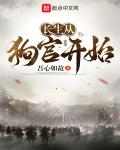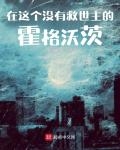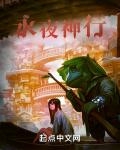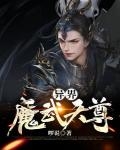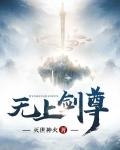Chapter 233: The founding of a dynasty that lasted a thousand years and an unprecedented era of prosperity!
In the original history, Liu Bang entered Xianyang, made three laws, and did not violate any law, which won him the deep love of the people of Qin.
On the other side, Xiang Yu, unable to deal with the 200,000 Qin prisoners, killed them all.
Just like Bai Qi's massacre of 400,000 Zhao soldiers, Xiang Yu's massacre was, strictly speaking, a stopgap measure.
After all, most of the soldiers under his command, and even the armies of the princes in the alliance, hated the Qin people.
"Records of the Grand Historian - The Biography of Xiang Yu" records: When the Qin army surrendered to the princes, the princes' officials and soldiers took advantage of the victory to take many slaves and use them as slaves, and easily humiliated the Qin officials and soldiers.
At that time, the princes' armies generally treated the surrendered Qin soldiers with contempt and even insulted them, because this was to avenge the insults they suffered from the Qin army when they passed through Qinzhong!
This situation cannot be suppressed by the commander-in-chief's words.
This is essentially the collective hatred of the Qin people by the entire army from top to bottom. They would want to eat the flesh and suck the marrow of any soldier, let alone kill him in a pit.
This is the view of the princes’ army. What do the Qin soldiers think?
"Records of the Grand Historian - The Chronicle of Xiang Yu" records: Many Qin officials and soldiers secretly said: "General Zhang and others are trying to trick us into surrendering to the princes." The other generals heard of this plan and reported it to Xiang Yu.
This was a serious problem. All the Qin soldiers felt that they were betrayed by Zhang Han.
There are 200,000 surrendered soldiers. If we are not careful, there will be a mutiny.
How to deal with these people?
Annexation.
it's out of the question.
It is estimated that Xiang Yu had less than 100,000 soldiers and horses. He only sent 20,000 troops in the first battle of Julu, which shows that his military strength was limited.
It is unrealistic for a small army to annex a larger army.
Even if Xiang Yu was as brave as a snake and swallowed an elephant, and incorporated these 200,000 Qin troops, he still could not afford to support them.
Once problems arise later and the Qin army takes up arms, it will become a question of who will be recruited.
Hand it over to the armies of the princes?
This is an even stupider choice.
These princes were not of the same mind as Xiang Yu. In the previous Battle of Julu, these princes stood by and watched. They saw with their own eyes that the desperate Chu army fought ten to one and defeated the Qin army with only one. Only then did they bow their heads and recognize Xiang Yu as the leader of all anti-Qin forces .
But if we divide the 200,000 Qin troops among these princes...
Even if Xiang Yu was a pig, he would not do this.
Then there is only one last option left, to release all these 200,000 people?
Once the tiger is released back into the mountains, it will become an army of 200,000 tigers and wolves in the future.
Do we have to make another desperate move?
It is not certain who will win by then.
Among these many choices, Xiang Yu actually did not have many good options.
He had no choice but to bite the bullet and kill all these 200,000 people!
He chose the simplest and most direct method, and paid a sufficient price for it in the future!
When 200,000 Qin soldiers were killed, Xiang Yu led his troops to Hangu Pass, only to learn that Liu Bang had already captured Xianyang and sent troops to garrison there to prevent his troops from entering the pass.
Xiang Yu was furious and immediately attacked to seize the pass.
Afterwards, Xiang Yu led an army of 400,000 and marched straight in, stationing his troops at Hongmen, about 40 miles away from Bashang, which not only intimidated Xianyang, but also formed a confrontation with Liu Bang.
Next is the plot of the Hongmen Banquet.
For various reasons, Liu Bang was not killed and was eventually demoted to Shu.
Many people say that.
If Xiang Yu had listened to Fan Zeng's advice and killed Liu Bang at the Hongmen Banquet, perhaps there would be no subsequent story.
But this is purely speaking from the perspective of a latecomer, and I have never thought about how complicated the situation was at that time.
At that time, Xiang Yu killed his main general Song Yi before he could seize the military power.
He hasn't quite found his feet yet.
If Liu Bang was killed at this time, how could he win the support of the princes?
Liu Bang had already surrendered to you and pledged his loyalty to you, but you, Xiang Yu, still killed him out of anger because he entered Guanzhong first. What would the princes think when they saw this scene?
Most of Xiang Yu's army of hundreds of thousands were from the princes. He won the Battle of Julu and became the leader of the princes. Then he led these troops to Xianyang in a high-spirited manner. But that does not mean that these troops were Xiang Yu's troops and were completely loyal to him.
So, looking at this matter from Xiang Yu's perspective, as long as Liu Bang surrenders, everything will be fine.
During this period, Xiang Yu's biggest opponent was not Liu Bang, but King Huai of Chu, Xiong Xin.
Although King Huai of Chu was a puppet supported by Xiang Liang, after Xiang Liang's death, King Huai of Chu had gradually gained control of the power.
It was only because Xiang Yu killed his main general Song Yi, which created a situation where "the general is not always able to obey the orders of the king when he is away from the court". King Huai of Chu had no choice but to do the same as when Tian Zang, the general under Wu Guang's command, killed Wu Guang. Both King Huai of Chu and Chen Sheng had to accept it.
In Xiang Yu's view, Liu Bang was just a tool supported by King Huai of Chu to oppose himself. As long as Liu Bang bowed his head, there would be no problem.
Therefore, the outcome of the Hongmen Banquet was doomed from the very beginning when Liu Bang bowed his head.
on the contrary.
At the Hongmen Banquet, Fan Zeng always wanted to kill Liu Bang, on the grounds that Liu Bang was capable of accomplishing great things, which was a bit strange.
If Liu Bang was really killed and Xiang Yu's plan of enfeoffment of princes was disrupted, who would benefit in the end?
King Huai of Chu!
Therefore, it is possible that Fan Zeng during this period was on the side of King Huai of Chu, and there were certain reasons why Xiang Yu was suspicious of Fan Zeng in the future.
From the very beginning, Liu Bang was just a pawn between the two.
Of course, in the end, Liu Bang went from being an insignificant chess piece to unifying the world, which is another story.
To get back to the point, at this moment, Su Che took advantage of Zhang Han's absence to steal Xianyang City, but he no longer needed to be wary of Xiang Yu and those princes like Liu Bang did at that time.
They have only just started the rebellion and it will take a long time for it to develop. By the time they arrive in Xianyang City, it will be too late.
The only thing we need to worry about now is whether Zhang Han will come back and destroy everything together.
But it shouldn't be a big problem.
From the fact that Zhang Han surrendered to Xiang Yu and accepted Xiang Yu's enfeoffment with peace of mind after Xiang Yu killed 200,000 Qin soldiers, it can be seen that this guy has some moral integrity... but not much.
So Su Che was not too worried.
The only problem now is to appease the people of Qin.
Su Che first made three rules.
In order to quickly win back the hearts of the people and live in harmony with them, Su Che decided to do something more thorough. He temporarily stopped all corvee labor and then directly abolished the land tax!
Su Che promised that as long as he, the King of Han, was alive, he would never collect land tax from any farmer again!
Once this policy was announced, it instantly caused a sensation throughout the Qin area, and all the old Qin people were shocked.
Even the people who came to Qin with Su Che were shocked!
Exemption from land tax!
This is definitely the first time in history, and it is the only time like never before!
This is absolutely the policy of a benevolent person!
Prime Minister's Mansion.
Since the conquest of Xianyang, Xiao He has taken over the laws and books stored in the Qin Prime Minister's Office and the Censorate, and has mastered the dangerous mountains and rivers and the population of counties across the country. These data and information are of vital importance and will play a decisive role in the formulation of future policies.
In Xiao He's opinion, this is the real treasure of Xianyang City.
As for the other things, they are just mundane things.
Xiao He, who was sorting out these laws and regulations, could not help but sigh: "My courage is far inferior to that of the king."
Fan Kuai, who was full of questions and had come to see Xiao He, could not help but ask, "Brother, aren't you confused? Why should we exempt the land tax? If we exempt the land tax, where will our military expenses come from? How will the salaries of those officials be paid?"
Hearing this, Xiao He shook his head and said with a smile: "If the land tax is exempted, will there be no other taxes?"
"What?" Fan Kuai was stunned.
He was born a butcher, so he didn't know much about taxation, so he didn't react for a while.
After hearing this, Fan Kuai asked curiously: "Are there other taxes?"
In his early years, Xiao He entered the Qin Dynasty and served as the chief clerk of Pei County. Naturally, he knew a lot about this aspect.
Xiao He nodded and slowly explained...
In the Qin Dynasty.
Farmers have to pay a lot of taxes just for farming.
This tax includes many aspects.
1. Rent and tax. Taxes are calculated based on the area of the land. During the Qin Dynasty, the government held ownership of most of the land and leased the land to farmers, so naturally rent taxes had to be levied.
Second, the land tax, which is a tax calculated based on the output of the land, that is, the harvest of agricultural products. The standard for collecting land tax is usually 20% of the output, and in some places, the tax rate will be higher.
Third, the household tax, or head tax, is a tax levied on each household. It is usually calculated based on the number of people, so it is also called the head tax. In the Qin Dynasty, household tax accounted for more than half of the total agricultural tax revenue. Regardless of whether you planted crops or not, or how much you harvested, you had to pay taxes based on your head! This was also one of the main sources of tax revenue for the dynasty.
Fourth, there are the cultivated land water conservancy tax and individual household tax. Because cultivated land requires the construction of water conservancy facilities to increase grain production, a certain amount of tax must be levied on the construction of these water conservancy facilities. In addition, some wealthy landlords must also be subject to additional taxes because they are too rich.
Therefore, Su Che's exemption of land tax is really nothing...
Rent, head tax, and other major levies were not exempted.
It was just a land tax exemption.
certainly.
Even if the land tax was exempted and this burden was removed, it was still a valuable policy and the first time in history.
It is extremely rare for vested interests to voluntarily give up their own interests...
As far as land tax is concerned, Mencius believed that collecting one-tenth of the tax is the policy of a king.
In Mencius' view, being able to collect a tax of one in ten miles was already very good.
And Su Che was able to directly exempt the land tax. Isn’t this the policy of a sage king?
Su Che and Xiao He discussed tax issues.
Exempting land tax is only Su Che's first step, and it will definitely not be the only step.
According to historical records, land tax was exempted for eleven years during the reign of Emperor Wen of Han.
Naturally, Su Che was unwilling to just do this.
He also wanted to go a step further and abolish the poll tax directly! Remove all the burdens on the farmers!
When Xiao He heard this, he was shocked and asked, "If the head tax is abolished, how will the government of the country be run?"
Abolishing land tax was a bold enough policy, but abolishing head tax was too radical. Even Xiao He could not imagine how a country would function if head tax was really abolished.
Xiao He believed that there was nothing wrong with exempting land taxes to allow the people to rest and recuperate, but it would be difficult for a country to become strong if the head tax was abolished.
But Su Che didn't think so.
His idea was simple.
To create a prosperous era with Mohism and to develop the country with science and technology, it is inevitable to develop business and produce various derivative products. Then we can collect taxes on these products. This is called consumption tax, also called value-added tax!
What is VAT?
As the name suggests.
Every time a product increases in value, tax is charged!
VAT and double taxation are not the same concept and are in fact completely opposite.
VAT can avoid double taxation.
VAT is charged at each stage in the production and sales process of goods, but the tax at each stage is calculated based on the value added at that stage, rather than on the value of the entire good or service.
Therefore, VAT is cumulative, not repeated.
This is complicated, so let me give you a simple example.
Su Che set the VAT rate at 10%.
A manufacturer buys some raw materials for 100 yuan, so he needs to pay 10 yuan of VAT.
Then he used these raw materials to make a product and sold it to a wholesaler for 200 yuan.
At this time, the manufacturer has to pay another 10 yuan in value-added tax, which is based on the 100 yuan of value he added.
The wholesaler then sells the product to the retailer for 300 yuan, and he also has to pay 10 yuan in value-added tax, which is also calculated based on the 100 yuan in value he added.
Therefore, the tax at each stage is calculated based on the added value, not the entire value, so there is no double taxation.
That’s the beauty of VAT!
The most ingenious thing is... this tax collection process can bypass all ordinary civilians.
Many people automatically pay taxes when they buy goods without knowing it. They have no idea that everything they eat, wear, live in, and travel is subject to tax.
Su Che's idea came from his days studying at the Jixia Academy.
There is such an anecdote.
History books once recorded:
Duke Huan of Qi and Guan Zhong discussed strategies for enriching the country many times.
Duke Huan of Qi suggested levying taxes on houses, towers, trees, livestock and population.
Guan Zhong denied them one by one. In his opinion, taxes are tangible, and directly collecting money and property from the people would naturally cause dissatisfaction among the people.
The best and most ideal way is to "take it from the invisible and make people not angry."
Based on this, Guan Zhong proposed the method of "embedding tax in price" - hiding the tax in commodities and implementing indirect collection so that taxpayers cannot see or touch it and pay taxes without realizing it, and it does not cause psychological confrontation.
As for the specific method, Guan Zhong gave a simple seven-word answer: "Only the mountains and seas can be governed."
All you have to do is monopolize the resources of the mountains and the sea. The mountains produce iron ore, and the sea produces sea salt. This is the salt and iron monopoly system.
During the farming period, salt and iron were the two most important pillar industries, and no one could leave them for a moment.
Guan Zhong gave examples of the monopoly revenues from salt and iron.
He said that in a country with ten thousand chariots, if a head tax was levied on adults, the number of people who would have to pay the tax would be about one million, and if each person was levied thirty coins per month, the total would be thirty million coins.
If a salt monopoly is established and the price of each liter of salt is raised appropriately, it may be possible to earn 60 million coins per month, which is expected to be twice the income from the poll tax.
On the surface, the court did not levy taxes, so as not to arouse the people's "clamorous" opposition.
Not only is this true domestically, but the salt can also be exported to make huge profits. This is equivalent to boiling the inexhaustible sea water to force people all over the world to pay taxes to Qi, that is, "boiling water to control the world."
The same is true for iron monopoly.
Guan Zhong said: Generally speaking, a farmer, whether engaged in farming or working as a housewife, needs iron tools such as needles, knives, plows, hoes, kettles, saws, awls, chisels, etc. As long as you add one penny to the price of a needle, you can collect thirty pennies for thirty needles, which is equal to the head tax that one person should pay. By analogy, the total national income will not be less than the total amount of head tax collected.
On the surface, the country does not levy taxes, but in reality, everyone is paying taxes!
This policy has continued in ancient times. From ancient times to the present, every dynasty has hidden taxes in the state-run salt and iron commodities, and implemented indirect collection, so that taxpayers cannot see or touch the taxes, and pay taxes without knowing it, and the psychological resistance is much less.
Of course, the choice of more dynasties is to collect both the head tax and the price tax! They want them all!!
However, in the later period of a dynasty, landlords and gentry concealed their land and hid the farmers, so many taxes could not be collected, leaving the treasury empty. This was one of the fundamental reasons for the collapse of the dynasty.
Su Che thought a lot about this crux of the matter at the Jixia Academy.
Finally, he figured out a solution.
The state-run salt and iron industry took the taxation system to a higher level by integrating it into prices, vigorously developed the commodity economy, liberated more productive forces, and completely transferred the head tax to the value-added tax.
If so.
When the dynasty with a thousand-year-long history is established, and an unprecedented prosperous era is born!!

